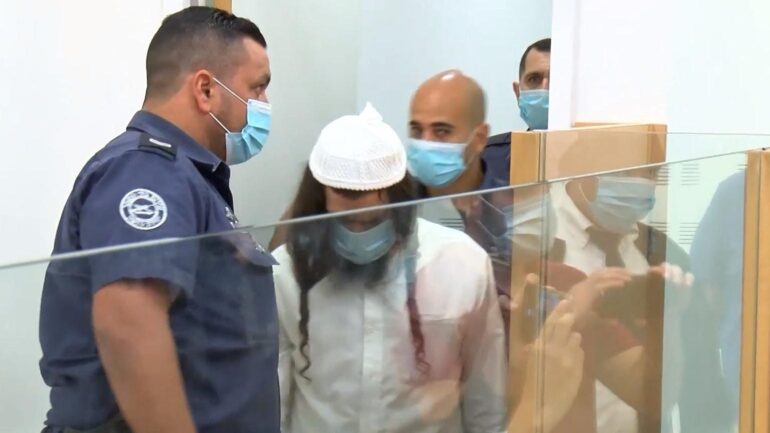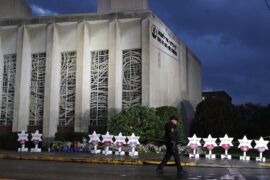The Lod Central District Court convicted 25-year-old Amiram ben-Uliel on Monday of murdering three Palestinians in a July 2015 terror attack in the Duma community.
The arson attack on the Dawabsheh family home killed parents Sa’ad and Riham, as well as their 18-month-old son Ali, leading to widespread demands for justice from Palestinian society and from abroad.
I’m personally not satisfied with Amiram’s conviction because I also want justice for the Dawabsheh family, and I’m not convinced this is it. Too many factors cause me to see ben-Uliel as a scapegoat, and if that’s the case, this has been a severe miscarriage of justice for both him and the Dawabsheh family.
Amiram was tortured for his confession, and despite the court’s claim that the confession it ultimately accepted was given to his Shabak interrogators three days after the torture, I find it hard to believe that fear of further violence wouldn’t cause a helpless detainee to stick to the same confession he previously gave while being tortured (the initial confession was dismissed by the court).
Amiram ben-Uliel’s lawyers announced Monday that they would appeal the verdict to the Supreme Court.
One of the attorneys, Asher Ohayon, has made several convincing arguments challenging the confession. He pointed out to the court that, while reenacting the attack for his interrogators, ben-Uliel was clearly unfamiliar with the scene. He also noted that a conflict exists between witness testimony placing two attackers at the scene and the prosecution’s claim that ben-Uliel acted alone.
“First of all is the testimony of the person who was there and actually saw two people throwing firebombs at the house and they are the ones who actually committed the act, while the prosecution also claims that Amiram could not be one of these two.”
“We ultimately presented the question to the court,” Ohayon recalled. “If the evidence is true, then it cannot be Amiram. For us, this is a key argument in the testimony that proves Amiram’s innocence.”
“Many more arguments were presented,” he continued. “One of which was that there were two different graffiti samples in the place and neither of them was in Amiram’s handwriting. Further proof that there were two arsonists and neither of them was Amiram because it wasn’t his handwriting. Two different and very fresh shoe prints were found in the area. Neither of them were identified as Amiram’s.”
All evidence presented appears to conflict with the prosecution’s case. In fact, the only evidence they really have is a confession from a tortured detainee.
Ignoring the fact that the Shabak, an institution presumably meant to protect Israel’s citizens, tortured an Israeli citizen when that person posed no immediate threat, the hazy circumstances surrounding the confession should cast a very serious doubt.
Amiram was tortured by his interrogators into confessing. The footage from the town’s security camera was mysteriously lost. Before any evidence was presented at trial, Israel’s media, security establishment and right-wing politicians (most notibly Prime Minister Binyamin Netanyahu and Naftali Bennett) tripped over one another in their mad rush to publicly condemn not only the suspects but also the entire “hilltop youth” subculture they’re associated with.
Member of Knesset Ayman Odeh (Joint List) and other Palestinian activists have demanded that harsh justice be meted out to Amiram, claiming that Israel could open itself up to accusations of cracking down harder on Palestinian terrorism than on Jewish terrorism.
But before any harsh justice is meted out, we must be absolutely sure that we have the right person, and we should make sure in such a way that doesn’t dehumanize the suspect.
In truth, I don’t really care if Israel is accused of cracking down harder on Palestinians than Jews, but I do care if there isn’t justice in our country.
What I’d like to see is Israel’s legal establishment give Amiram true justice, that the Dawabsheh murders don’t go unsolved or solved improperly, and that Palestinians also start receiving fair and humane treatment from our legal system.
If we see a disparity between Israel’s treatment of Jewish and Palestinian prisoners, that disparity should be corrected by raising the standard for how our security and judicial establishments treat Palestinians and not by lowering the standard for how they treat Jews.





